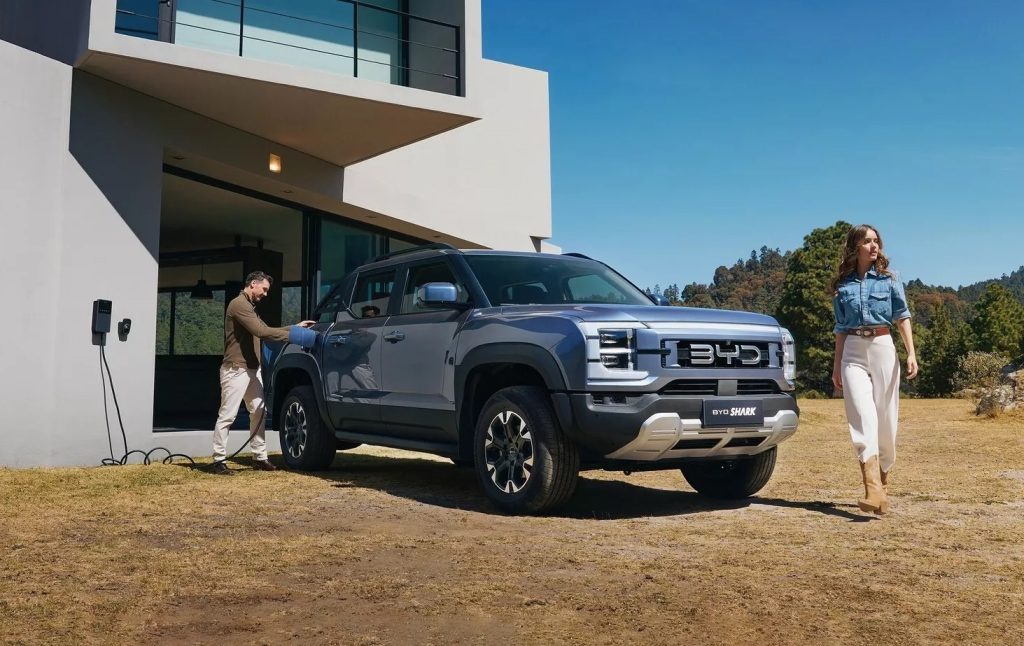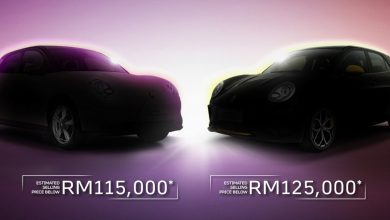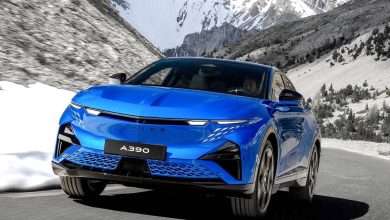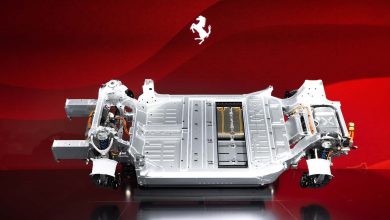The New BYD Shark Is A PHEV Pickup That Packs 430 HP
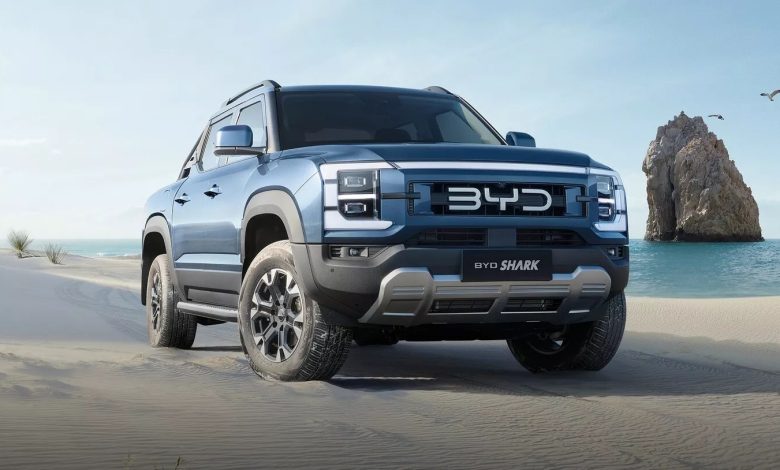
This new BYD Shark also touts a 0-100 km/h time of 5.7 seconds and 100 km of EV-only range.
Following closely on from BYD’s ambition to take on Tesla with its Model 3-rivalling Seal, the Chinese EV giant has since decided to challenge Toyota too with a recent reveal of its new PHEV pickup truck. And true to its name, this Shark could soon well be chomping down on the sales of the established whales that have long since been dominating this segment.
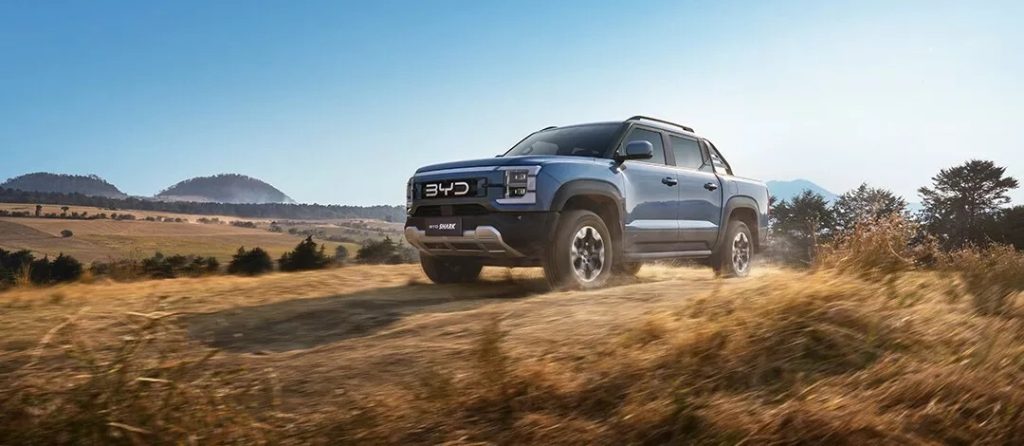
Having said that, this BYD arguably has dimensions that are more analogous to a whale than a shark’s, with the automaker themselves even claiming for this pickup to feature the largest body size in its class. Measuring in at a whopping 5,457 mm long, 1,971 mm wide, and 1,925 mm tall, the Shark is actually a massive 132 mm longer, 71 mm wider and 110 mm taller than the current (and already rather ginormous) Toyota Hilux, with a 175 mm longer wheelbase to boot at 3,260 mm.
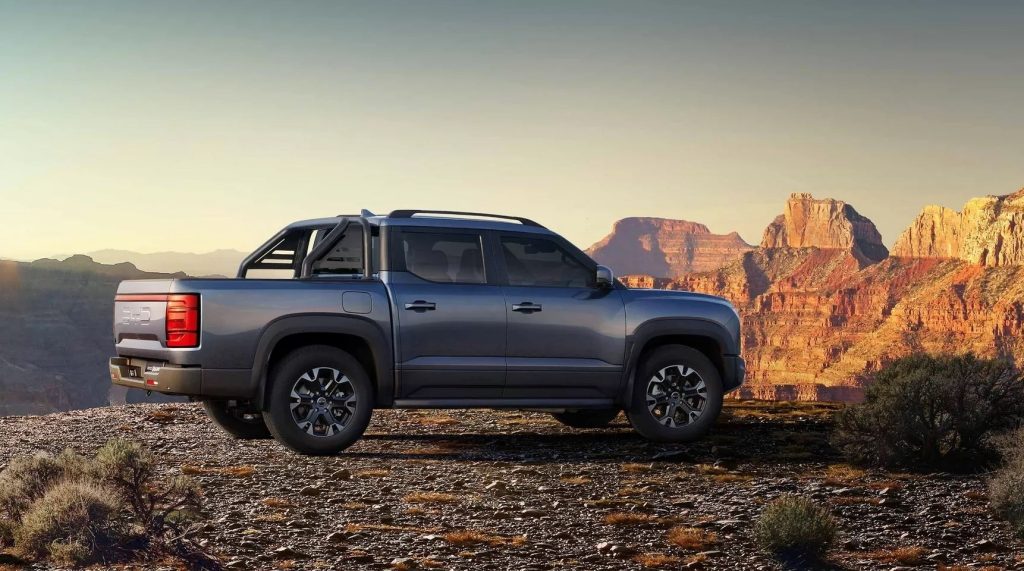
Transitioning towards a discussion on how its massive body is styled meanwhile, the Shark has arguably taken quite a lot of its design cues from Ford’s F-150 series. Something that is made unmistakably clear from the lighting signature from its full-width LED bar up front that looks more Blue Oval than BYD, in addition to the Lightning-esque full-width rear light bar running right across its tailgate
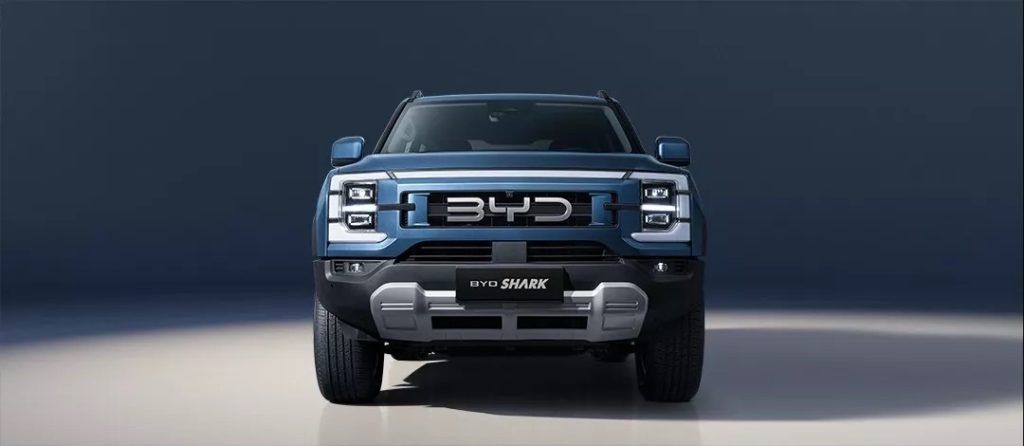
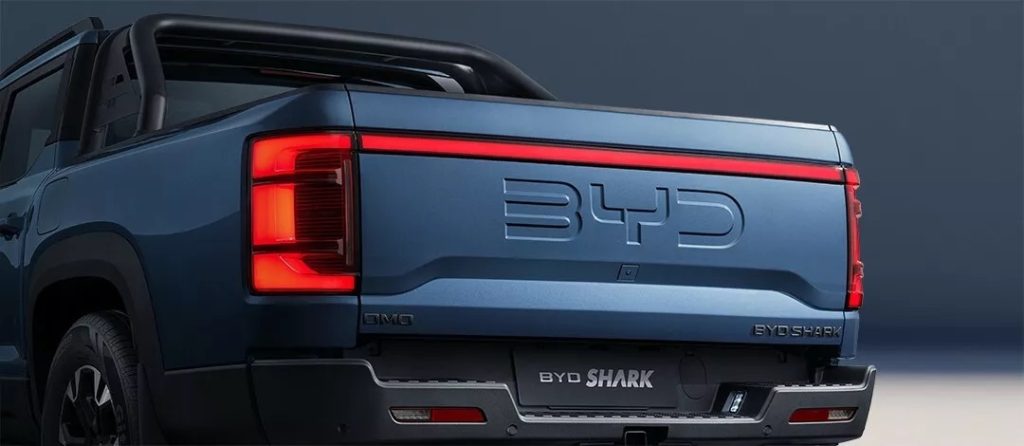
There is nevertheless a hint of its YangWang U8 distant sibling from its bulbous yet boxy front fender bulge, which admittedly does quite the job too in bringing out the tough and rugged look that BYD is aiming with this Shark. This macho aesthetic further continued through the inclusion of a chunky aluminium-style skid plate at the front to match the chunky grille, with side steps between its dual-tone alloys and a sports bar in its bed adding that little bit more punchy pizzazz to its slab-sided profile.
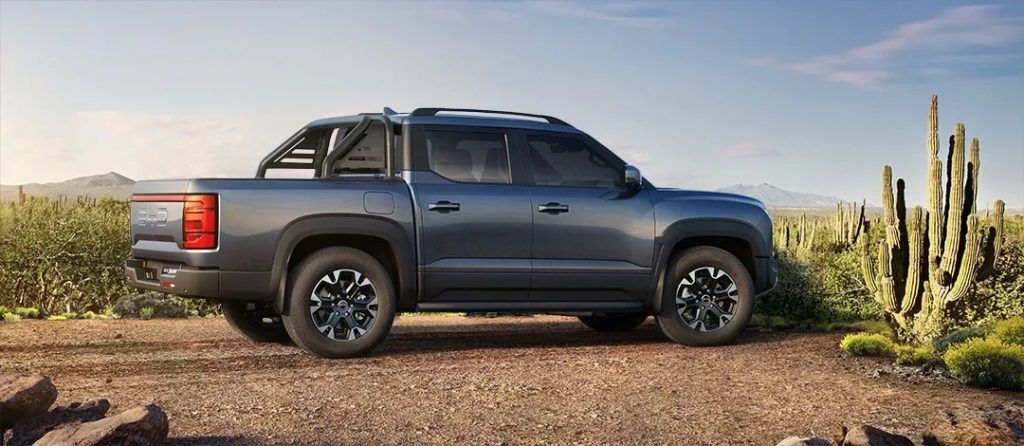
As for is to be driving said 18-inch wheels now, the Shark rides on BYD’s DMO Super Hybrid Off-road Platform. And as the Hybrid term suggests, under the hood of this PHEV pickup is 1.5-litre turbocharged four-cylinder, in addition to a drive motor mounted on each axle.
The finer details regarding how this PHEV system works is unfortunately still a bit vague thus far, with there being some confusion as to whether or not the ICE component actually is connected to the driven wheels. In any case though, BYD current quotes for the front motor i to output 228 horsepower, while the rear motor delivers an additional 201 horsepower. This in turn gives the Shark more than 430 hp and a century sprint time of just 5.7 seconds, before eventually running out topping out at 160 km/h.
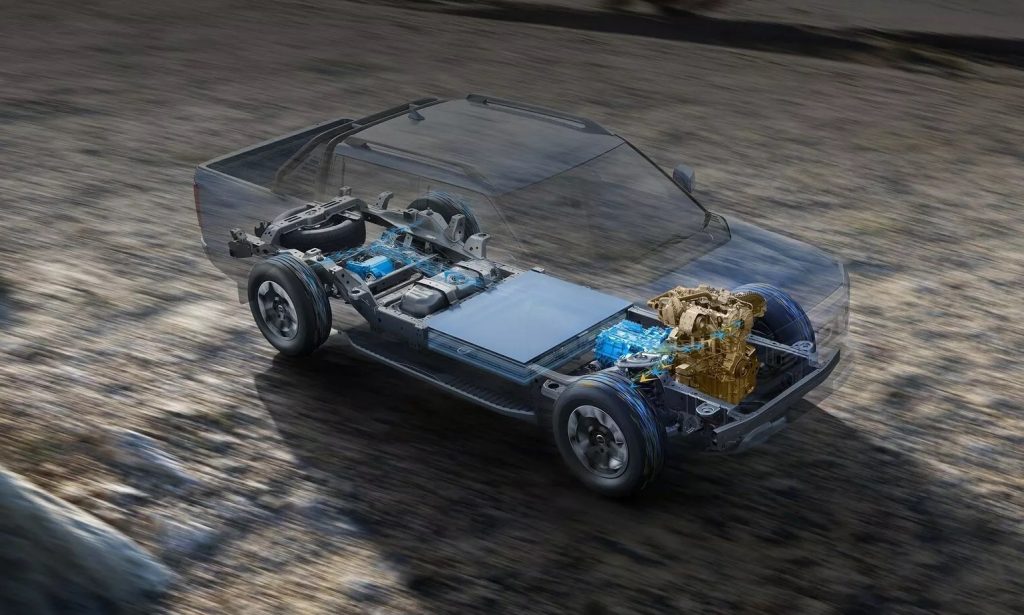
Though perhaps more impressive than its performance figures is to be its range estimates, with the Shark currently touting an NEDC-rated all-electric driving range of 100 km from its 30 kWh LFP Blade battery pack. BYD is also further claiming that this PHEV pickup is capable of achieving 840 km on a single full tank and charge with a quoted fuel consumption figure of 7.5 l/100 km, while the aforementioned battery is able to DC fast charge from 30% to 80% in as little as 20 minutes too.
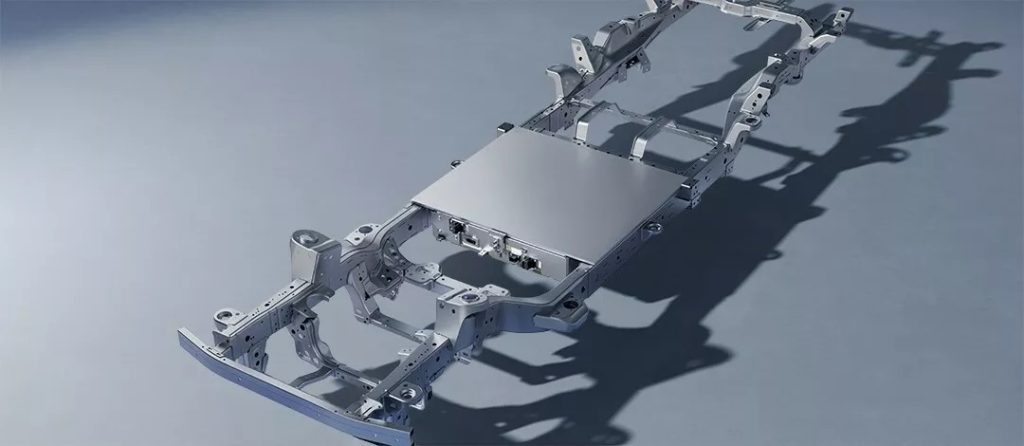
Another rather unique highlight under the skin of this Shark is for it to feature independent front and rear suspension, which will all but likely mean for it to offer a more car-like ride and handling characteristic over the live rear axle setup currently found in all its other established pickup counterparts (but the Navara). And somewhat astounding as well is this PHEV pickup to apparently still able to carry close to double the Hilux’s limit in its 1,450 litre bed at 825 kg, with it also touting a decently impressive towing capability of 2,500 kg.
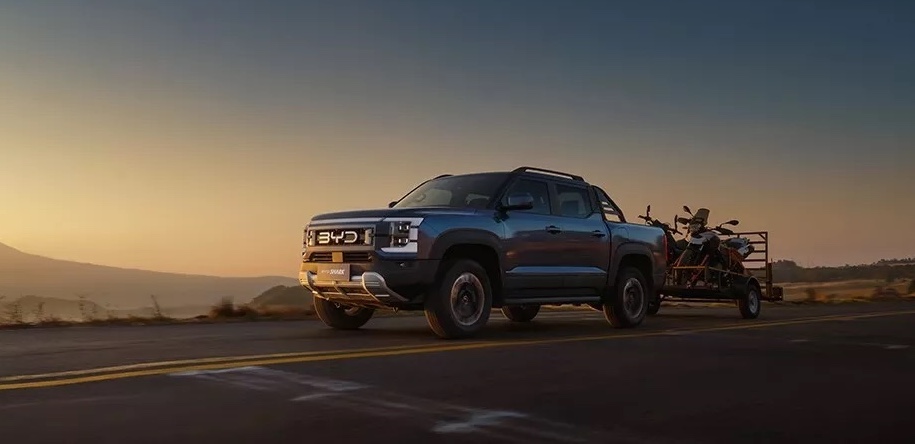
Moving along inside, the chunky yet car-like cabin of the Shark is headlined by a 10.25-inch digital instrument cluster and the usual BYD rotatable central infotainment measuring 12.8-inches. Apple CarPlay and Android Auto integration is also to be found within too, along with a 12-inch head-up display and a 360º camera that does the Land Rover thing of offering glimpse of the terrain beneath the vehicle.
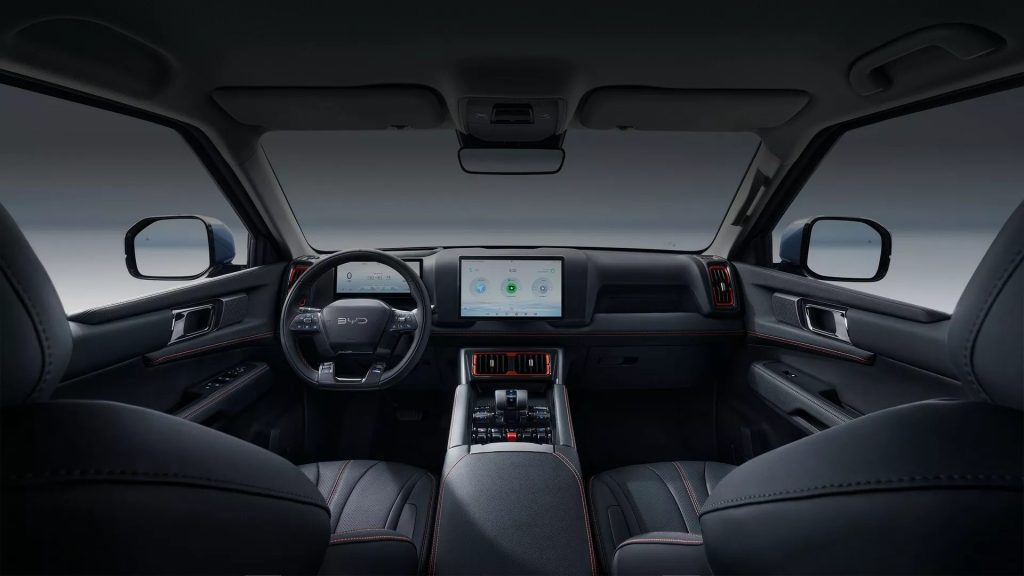
In terms of the obligatory Chinese car tech gimmick, this feature time round with the Shark is a karaoke function that apparently enables owners to sing along with an optional handheld microphone. Perhaps more pertinent to buyers however is for this BYD to still feature the usual plethora of active safety tech that includes adaptive cruise control and automatic emergency braking, with a smartphone digital key likely making that little bit easier to live with too.
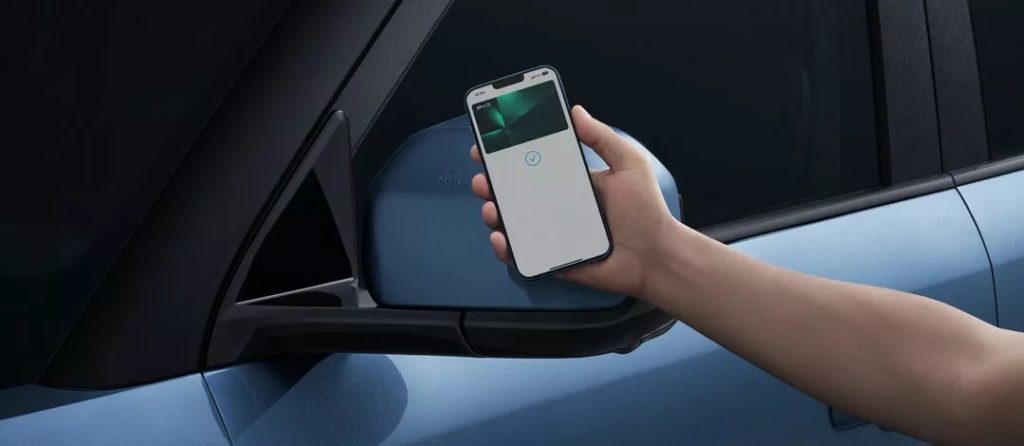
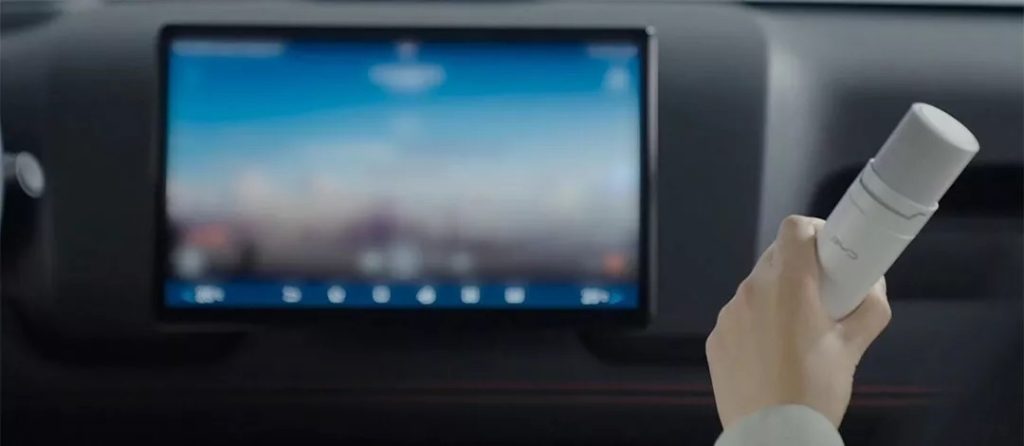
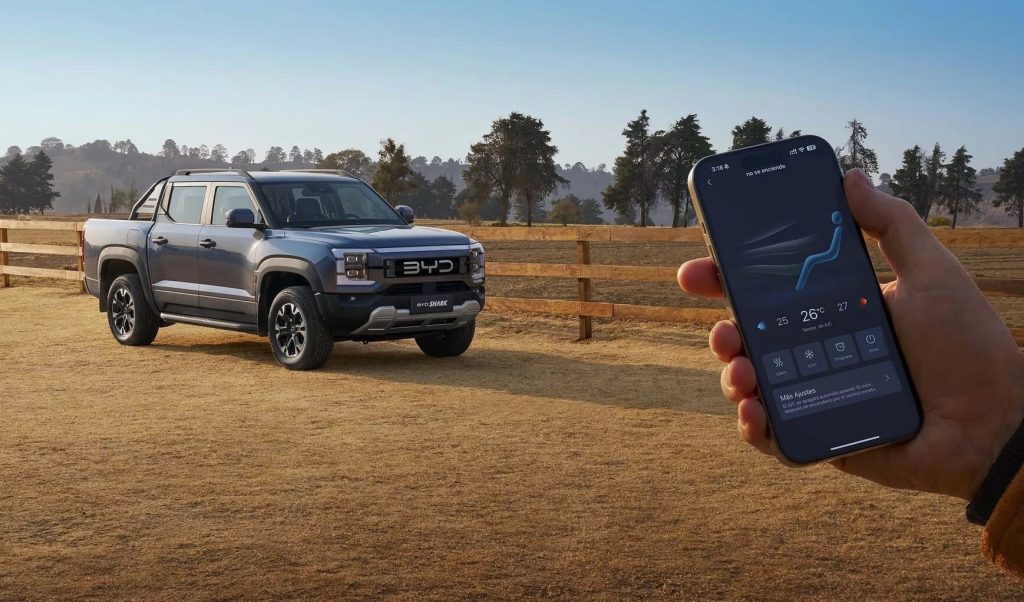
This BYD PHEV pickup is currently at its launch locale in Mexico thus far, with prices for it starting from 899,980 pesos (RM 251,000) for the Shark GL and 969,800 pesos (RM 271,000) for the premium Shark GS. These aforementioned prices are interestingly (for a Chinese car at least) to be higher than the established competition in the form of the Tacoma and Ranger over there, so it will really be a test to see if this Chinese cargo carrier can truly compete with the big boys.
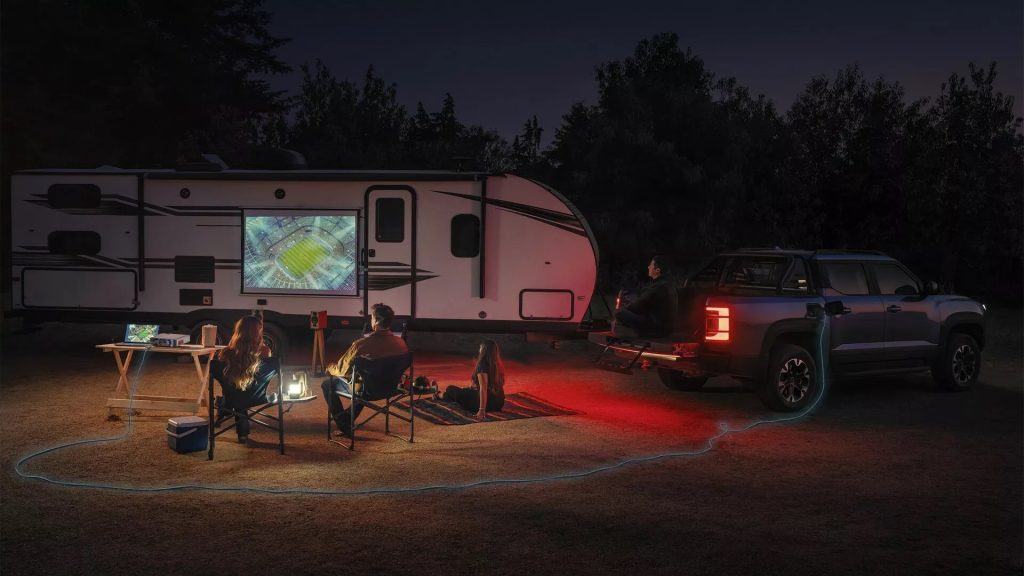
Similarly interesting too is for BYD to have picked Mexico as the launch location of the Shark, instead of the typical mid-sized pickup truck stronghold of Thailand. This move is possibly performed to make its intentions clear on a potential future entrance into America, but this also inadvertently means it is currently up in the air whether or not the current all-electric BYD lineup locally will eventually feature some this rugged ICE-assisted cargo carrier in its range.
